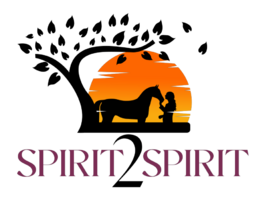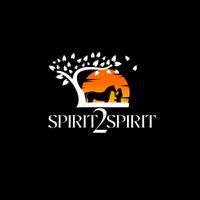
EGO
It’s not about you, and it’s ALL about you.
When I work with people whether in relation to leadership or in their own personal journey of self-fulfillment and connection, we talk about the ego a lot. The initial understanding of ego tends to be that it is the seat of our confidence. We seem to either have too much or not enough. We’re either a ‘self-centered blow-hard’ or a ‘narcissistic asshole’ or in more current terminology an ‘Alpha’. On the other side of the ego is the ‘wallflower’ or ‘insecure loser’ or in more current terminology ‘Beta’. However, this superficial glossing over of the more complex system that makes up the ego is just scratching the surface of what actually creates these states of being, which are the external projections of our internal biases, narratives, perspectives, energy, nervous system state along a continuum, and so much more. If you hang with me, we will walk into these murky waters with the goal of emerging on the other side with a better understanding of what makes up the ego, and how we can move from ‘cringe’ status of ‘Alpha’ or ‘Beta’ into the ‘rizz’ of ‘Sigma’ (ok, I’ll stop).
The ego contains aspects of ourselves which developed from birth. These fragments of the whole build the framework that colors the landscape of our perspectives. These perspectives drive our actions and thus impact our outcomes. As we mature and develop, the ego moves from a single-celled organism to a vast network which requires oversight by a highly skilled committee. This committee is comprised of a few different key board members: the critic, the victim, and the judge to name a few. In the early development phases of the ego, when we have an experience the committee members analyze that experience and attach meaning. Through meaning-making, the members of our ego committee then pass judgement on the experience and file it away in its proper category. This entire process is designed to keep us safe. Take a moment to let that sink in.
Fit In Or Fall Out
In tribal or herd culture, it is safer to be “like” the others. Standing out, falling behind, or going against the grain can be risky as it challenges the status quo and can put the tribe at risk from outside its ranks. When there is risk or inner turmoil in a tribe, the outliers are often cast out or worse. Of note: trust and morality also play a role in the finer parts of developing tribal culture, but for the sake of being brief, I will highlight fear as it will override trust and morality when it’s our own skin on the line before someone else’s. Due to this, the ego is less concerned with how you feel about something than it is with whether or not you will be alive to worry about it in the end. “This dress makes me happy!” “Yeah, but it’s a bold color choice for a work event. Aren’t you afraid of what Becky from Accounting will say?” or “I’m terrified they won’t think I’m good enough for this job.” “Well then you better buy the most expensive watch to show your value at the meeting.”
It’s like a pendulum swinging from fear and judgment to bold and rebellious. Our ego says there’s a potential risk to our survival in the tribe, and therefore we think we need to try and control the perceptions of others to fit in. Some of us do that by being big and bold in a “IDGAF” approach when in reality we do GAF. Others will cope with this by choosing to shrink and hide, hoping to cruise by under the radar and unseen. All of this is hardwired into your nervous system along the continuum of fight/flight and freeze/appease. “Screw them! I’ll wear what I want! Let them talk!” masks fear just like “Perhaps it’s better if I just stay home, I’ll make some excuse about a sick kid” does. Ego is driving the bus along this continuum from one side of the nervous system to the other. It’s making assumptions based on perceptions formed by interpretations of experiences which form biases (whew! That sentence is probably not English lit professor approved 😉). Our biases and perceptions create those little inner voices of the victim and the judge. The victim and the judge are the ones who tell you it’s ALL ABOUT YOU. Anything and everything that those who know you are thinking and talking about is YOU.
Becky From Accounting
Try this on: You get to work, walking past Becky from Accounting and put on a half-hearted smile, add a lilt to your voice to try and sound upbeat even though you’re a bit short on caffeine today, and say “Good morning Becky!” with a salute of your coffee cup as you head to your desk. Becky doesn’t even look up from her computer, she just nods half-heartedly. Ouch. How does that feel? What is the story you are telling yourself about that experience?
In most cases, if this is a “normal” response from Becky it may not impact you quite as much…Becky’s just like that. However, if it’s a deviation from Becky’s normal behavior or WORSE, Becky is cheerful and makes eye contact and smiles to everyone else EXCEPT you – oh boy, we have a problem. The ego is going to crack its knuckles and step up to the plate. It’s ready to tackle the assumptions, perceptions, and interpretations. It’s going to replay every encounter with Becky, it’s going to analyze her posture, her other interactions with those around her, it may watch her throughout the day to see if her engagement level changes…. it’s going into full ‘how do I stay alive around Becky’ mode. It may run a range of emotions from mad to sad and everyone in between. “Screw her” and “why doesn’t she like me?” and “what did I ever do to her!” and “she obviously has a problem with me and that’s her issue” all start working the catwalk along fight/flight and freeze/appease.
Here's the thing: It’s not about you.
Perhaps Becky just got some bad news. Perhaps someone told her THEIR assumptions, perceptions, biases about you and she is under the impression you don’t like her (we love gossip don’t we?), perhaps her dog died and she’s just trying to get through the day and doesn’t want to burden anyone at the office so she smiles just enough to appear “normal”….whatever the reason, 99.9% of the time it’s not about you.
Wait you say, but what if it IS about me?! What if she really doesn’t like me? Well guess what…. that’s still not about you. That’s about HER perceptions of you. Now, to clear this up and get it all out on the table between you and Becky is for another blog post another time but trust me, most misunderstandings and miscommunications come from perceptions and biases or “meaning making” which is NOT the same as truth or fact.
*Note: No Becky’s were harmed in the writing of the above example.
The World Is a Reflection of Your Inner Landscape
When we begin to explore our ego from an anthropologic point of view, we can step outside of ourselves a bit and begin to explore what makes us tick with open curiosity. This requires us to put on the hat of a discerning investigator without judging or meaning-making. This is harder than you think! To truly let things be as they are without assigning meaning goes against our very nature, so do not lose hope if it doesn’t come naturally to you. This is a new muscle we must exercise, so give yourself some grace as you learn a new skill.
Next time you walk by Becky with a similar response, challenge yourself to not assign meaning. Continue on your day and treat Becky as you do all other members of the team and see how many times you have a story you tell yourself about your interactions with people at the office, at home, at the grocery store, at Timmy’s T-ball practice…and keep an informal tally. Get curious. I wonder why I respond this way? What is the story I’m telling myself? When was this story first formed? What purpose does it serve? (Reminder: It may serve a purpose!) Again, do not judge or discount something. Most often the purpose is survival in the tribe. Take notes if you’re a writer – though please do not stop at Becky’s desk and start writing while staring at her in your investigatory process of your inner ego…explaining your inner work to HR is time consuming at best.
So, when it comes to the ego and how we perceive the world around us – it’s all about you. Your assumptions, perceptions, interpretations, and biases create your inner landscape that shape your responses and actions that propel you through life. The good news is, there is a piece of us, our consciousness, that can step outside of ego, and can ask the members of the committee to have a seat at the back of the bus and turn over the steering wheel to your higher self, your consciousness, the seat of who you truly are at your core, or whatever terminology you assign to that part of you that is the observer beyond the one playing the part on the stage of your life. How you respond to the Becky’s of the world speaks more about you than it does about Becky.
Give yourself and others some grace. We are all wearing a meat suit with the same neuropathways trying to survive in this world. They are lost in their own inner landscape just as you are, trying to make meaning of it all. In the overlap of people and horses where I reside the most, this lesson is hard won in both arenas (pun intended). A horse isn’t “misbehaving” and people are rarely being assholes for no reason. There’s a motivation behind the action, and in most cases it is driven by a desire to survive, to fit in, and to thrive in a world that is against it in a lot of situations. When we can step outside of our ego for a second and analyze the situation in front of us with discernment and curiosity where fear and ego have to sit down in the back of the bus for a minute, we can see the situation with clarity and make a balanced judgement of what our next steps should be. Is what I asked for clear? Do I need to make an adjustment due to misinterpretation? Should I ask them to say what they see, and describe their perspective so I can gain clarity?
When we put horses and humans together to work through the lessons of the ego, beautiful moments emerge where the human finds clarity and lets go of ego as they realize the horse isn’t choosing to panic but is fearful of something unknown. They aren’t rejecting you, but they don’t trust what you are telling them. They aren’t misbehaving but confused about what you asked. This works with humans too believe it or not.
So you see, It’s not about you, and it’s ALL about you.
Don’t let this get you down now, tell the ego to hang on just a second longer before it passes judgement on this herculean task of reframing how we perceive our world. This is not an overnight fix. Like any muscle group it requires repetition and pattern building before it becomes a habit. If this is a brand-new practice for you, consider it an atrophied muscle. You haven’t left your chair and you’re learning to stand again, so don’t sign up for that mental triathlon this year, perhaps save that for next year. Learn to walk first, then run. To start, begin feeding your mind mental “health foods” – clean up what you scroll through, follow those who inspire you, and read books (or listen to them) that expand your awareness of this subject. A few of my favorites are:
- The Language of Emotions by Karla McLaren
- Dare to Lead by Brene Brown
- The Secret Language of the Body by Jennifer Mann and Karden Rabin
- The Mastery of Life by Don Miguel Ruiz Jr.
- Leaders Eat Last by Simon Sinek, particularly part 5.
I’m sure there are quite a few other good reads out there, and I have a library full of a few more, but hopefully this will give you a head start and not eat up too many credits on Audible!
Our next 3-day Mind, Body, Spirit Connection Retreat is September 26th through the 28th. To learn more, click this link: 3 Day Wellness Retreat at Spirit2Spirit Hosted by Resonance Healing . Early Bird pricing ends July 5th so don't wait!
To book a consultation call to discuss you or your team's leadership needs, please email Sonia@Spirit2Spirit.org


Comments